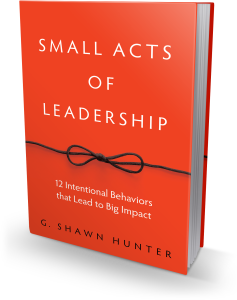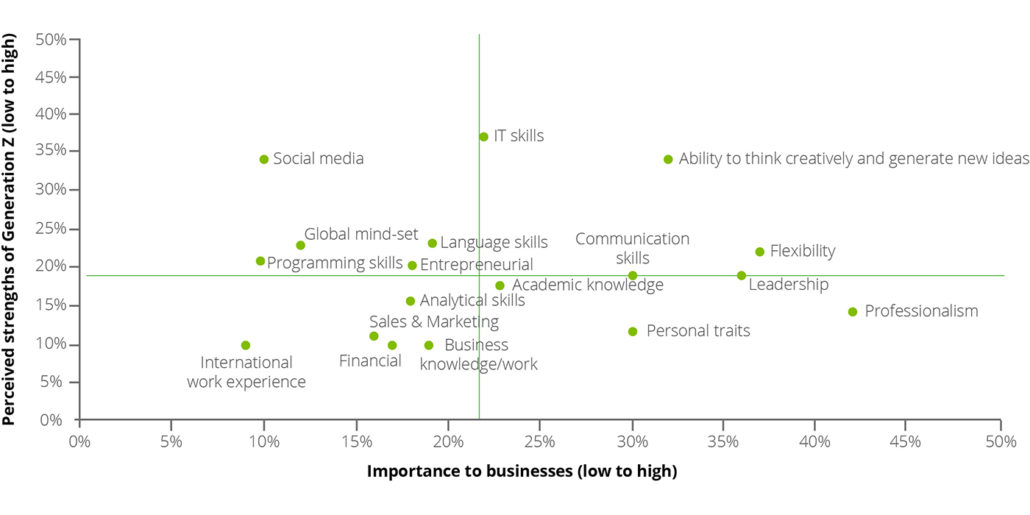The Surprising Skills Needed in the Future
It’s a chaotic, fast-changing time we live in. Automation, artificial intelligence, augmented reality, cyber-threats, business bots, and the internet of things. It would seem that in this age of hyper-accelerating technology, we would need the techie skills to match. Maybe, maybe not.
Recently Deloitte conducted a survey to understand the millennial generation and get their view on the future of business, productivity, and what millennials think of the emerging younger GenZ generation. It’s mostly good news.
Eight thousand millennials were surveyed from all over the world and it turns out millennials are pretty optimistic, particularly when it comes to job readiness for the emerging younger population. The advice of thirty-somethings to their younger generation emerging now doesn’t appear too different from advice from the past. From the study:
- Learn as much as possible: Begin your career open-minded and be ready to learn from others.
- Work hard: Do your best and do not be lazy.
- Be patient: Take your time when entering the workforce and go step-by-step.
- Be dedicated: Be committed to succeeding and persevering.
- Be flexible: Be open and adaptable to change and try new things.
Sound familiar? Thomas Jefferson, Michelangelo, John F. Kennedy, and Martin Luther King, Jr. all gave similar advice at different times in history.
But the surprising discovery in the study regards the specific skills needed to perform at a high level in the future. According to millennials working today in the world, it’s not technical skills that are needed. Analytic skills, IT skills, programming, social media skills, even language skills, and a global mindset, all ranked below the importance of leadership, flexibility, creativity, communication, and professionalism in the workplace.
That’s right. The strongest traits needed in the future to build innovation, and growing economies, are not technical skills, but human to human skills. Relationships drive progress in the world, not tech skills.
This is also good news for those of us who aspire to happiness and lifelong fulfillment. Harvard recently completed a study of over 75 years following the lives of 268 individuals from 1938 until now.
Through wars, marriages, career triumphs, personal tragedies, parenting, habits and daily behaviors, the Grant Foundation followed these people as they lived (and sometimes died) for 80 years. What they discovered is pretty simple.
They learned that the characteristics of a long, healthy and joyful life are strong relationships with other people, and resiliency through hardship. Religion, political opinions or sexual orientation made no difference. A happy childhood is helpful, but not necessary.
They learned that learning is a lifelong pursuit, and not restricted to childhood and adolescence. They learned that the habits you establish before 50 become predictive of mental and physical stability decades later, and the inevitability of a mid-life crisis is a myth popularized in the 70s.
According to the study, the strongest behavioral contributors of a joyful and successful life are the ability to create quality relationships with those around us, being altruistic with others, not taking oneself too seriously, finding joy in alternatives, and persevering through adversity.
Work on the strength of your relationships. It could be the most important thing you do, both for yourself and your community.
- ____________________________________________________

Twitter: @gshunter
Say hello: shawn@mindscaling.com
Web: www.shawnhunter.com




